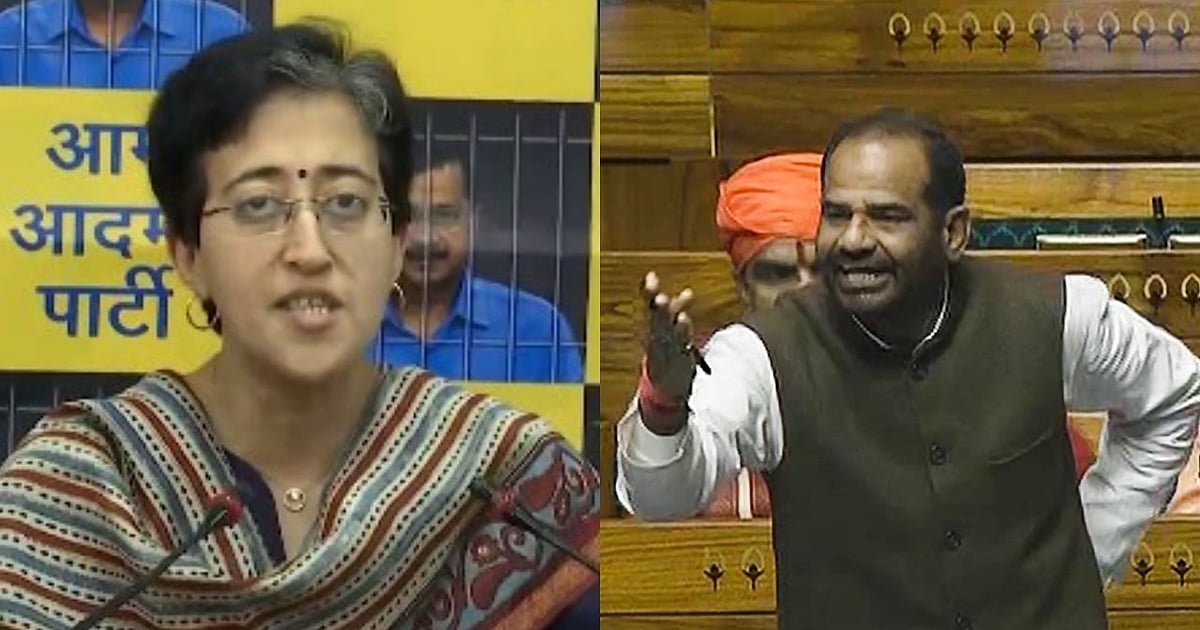 |
|
The upcoming Delhi Assembly Elections in 2025 are already shaping up to be a fiercely contested battle, and recent comments by BJP leader Ramesh Bidhuri have injected a new level of contentiousness into the fray. Bidhuri's remarks, described as derogatory and disrespectful towards Atishi, a prominent member of the Aam Aadmi Party (AAP), have ignited a firestorm of criticism and condemnation. His statement, likening Atishi to a 'deer roaming around', is seen by many as a thinly veiled attempt to demean her, playing on gendered stereotypes and undermining her political standing. This incident is not an isolated case; Bidhuri has a history of making controversial statements, highlighting a pattern of behavior that raises serious concerns about the tone and nature of political discourse in Delhi.
The AAP's response has been swift and strongly worded. They have not only condemned Bidhuri's remarks but have also used the opportunity to paint a picture of what a potential BJP government in Delhi might look like under his leadership. By highlighting the disrespectful language used against Atishi, a woman and a prominent political figure, AAP seeks to mobilize public support and portray Bidhuri, and by extension the BJP, as insensitive to the concerns of women and citizens in general. The party's statement suggests that if someone like Bidhuri were to ascend to the position of Chief Minister, the treatment of women and the general tenor of political discourse would be highly problematic. This strategy is designed to appeal to voters concerned about social issues and ethical leadership.
This controversy serves as a crucial microcosm of the broader political climate in Delhi and the strategies employed by both the BJP and AAP. The BJP, often relying on aggressive rhetoric and sometimes inflammatory statements, aims to appeal to a certain segment of the electorate. This approach, however, risks alienating other voters and overshadowing the party's policy platforms. The AAP, on the other hand, often employs a more measured approach, although the latest response suggests a willingness to aggressively counter BJP's tactics. The incident underscores the evolving dynamics of the Delhi political landscape and the importance of respectful and civil political discourse. The coming months will reveal how this incident shapes public opinion and influences the strategies of both parties leading up to the 2025 elections.
Analyzing the impact of Bidhuri's comments, it's essential to consider several factors. Firstly, the reach and influence of media coverage played a significant role in amplifying the controversy. The swift dissemination of news through traditional and social media channels helped spread the story quickly, generating significant public discussion and reaction. Secondly, the timing of the remarks, approaching the 2025 elections, adds an extra layer of significance. The controversy has the potential to impact voter perceptions and influence electoral outcomes. The nature of the comments themselves, using gendered slurs and insinuating a lack of competence, might resonate differently with various segments of the population. Some might see them as merely political maneuvering, while others may view them as deeply offensive and unacceptable.
Finally, this incident raises broader questions about the conduct of political leaders and the role of the media in holding them accountable. The prevalence of offensive or inflammatory rhetoric in political discourse is a matter of serious concern. The ongoing debate surrounding Bidhuri’s comments highlights the necessity of promoting responsible political communication and the importance of maintaining respectful interactions between political rivals. Furthermore, it underscores the crucial role of the media in reporting such incidents accurately and in providing a platform for public scrutiny of the conduct of politicians. Moving forward, it will be important to monitor how both parties address this issue and the broader implications for the tone and substance of the upcoming election campaign.
